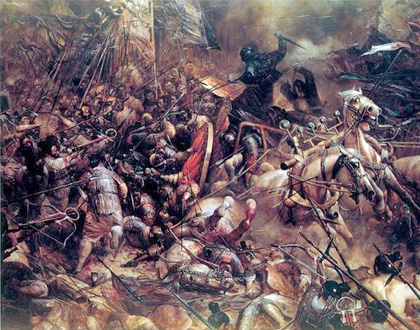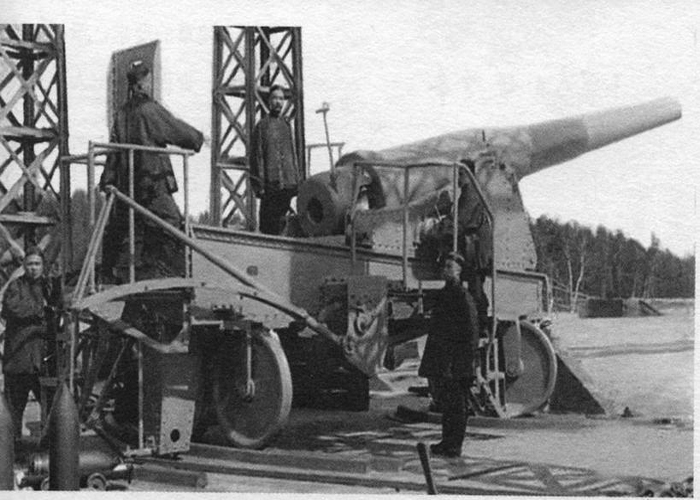Social functions of historiography

The War of the Eight Princes contributed to the downfall of the Western Jin Dynasty (265-317).

From the mid-to-late 19th century, the Self-Strengthening Movement urged industrialization to promote national strength and safeguard imperial rule of the Qing government.
In modern society, how should we treat social functions of historiography? This not only concerns the professional concept of researchers in the circle of historical studies, but is also an important issue of historiographical theory worth carefully pondering and discussing.
Function in ancient times
Since ancient times, practical utility has been the essential purpose of Chinese historiography. Ancient ideologists such as Gu Yanwu (1613-1682) proposed that learning should be conducive to national governance, stressing that academic studies must be linked with social reality, helping resolve social problems.
Practical utility of historiography mainly includes two aspects. The first is taking history as a guide. The second is learning ways through history. The two functions of traditional historiography had significant influence on social politics and thoughts in ancient China. While taking history as a guide, political views resulted from historical narration and analysis, and political policies were proved by quoting historical cases. Meanwhile, ways of dealing with things could be also learned from history, such as how to follow natural law, how to govern a country and even how to behave as a human being.
Hard to learn from history
It is obvious that traditional historiography played a positive role in society in ancient China. However, there were also disadvantages in practicing its functions. Firstly, investigation of social reality was weakened and excluded while designing political solutions, relying more on historical cases as reference and guidance. Although this might light up the flame of thinking, practical problems were not easy to tackle. Actually, it is a fatal mistake not to place the social situation in the first place while addressing social problems.
Secondly, while learning from history, historical cases were compared with realistic social problems. False conclusions were easily drawn if understanding of historical cases was superficial, one-sided and even incorrect.
There were more troubled times in ancient China than times of peace and prosperity. Events of rise or fall of regimes frequently occurred. Many were brought about by absurd and brutal rulers who didn’t absorb historical lessons. Some also resulted from historical lessons.
For example, during the Three Kingdoms Period (220-280), the regime of the Wei kingdom suppressed vassals from the imperial clan, leading to the perishing of the kingdom. Taking it as a warning, the Western Jin Dynasty (265-317) endowed all vassals with military power.
However, eight feudal lords rose and fought each other in a battle known as the War of the Eight Princes.
The Northern Song Dynasty (960-1127) drew a lesson from the Tang Dynasty (618-907), reducing military officers’ power and changing the military system. As a result, it frequently suffered from humiliation and forfeited its sovereignty with weakened military force. Therefore, taking history as a guide sometimes didn’t have the positive political effect expected.
In modern times, new things and new concepts constantly sprung up with rapid changes to the world situation. China was no exception. History couldn’t provide proper examples for reality. During this period, various disciplines with different characteristics and advantages came into being. Not all works were historiographical ones as in ancient times. Participation of multiple disciplines was needed to explain and resolve realistic problems. Only learning from history was not enough for practical utility.
Some movements with significant influence, such as the Self-Strengthening Movement (1861-1894), Hundred Days Reform (1898), the Xinhai Revolution (1911) and the New Democratic Revolution (1919-1949), had different natures and effects, but they belonged to social practice accomplished by combining advanced thoughts with the reality instead of taking history as a guide. It is therefore worth carefully pondering how to understand social functions of historiography. It is inappropriate for many contemporary scholars to exaggerate social functions of historiography and not to break away from traditional thinking patterns.
Keeping pace with the times
The rapid development of modern society has changed many old ideas. It goes without saying that social functions of historiography need rediscussing and repositioning in the circle of historical studies.
Firstly, historiography is still one of sources of rational thinking although it can’t be used to solve realistic problems alone. Historiography should contribute to promoting quality and wisdom of people from all walks of life together with other disciplines, including not only leaders’ capacity and tolerance, but also the masses’ wisdom and talent. Social practice such as the Self-Strengthening Movement, Hundred Days Reform, the Xinhai Revolution and the New Democratic Revolution didn’t result from social functions of historiography, but the prominent figures among which had great wisdom and quality originated from historiography.
Experience and lessons in modern and contemporary history can be taken as guides. However, historiography is left behind other disciplines for various reasons, only playing a supporting role in formulating concrete guidelines and policies. Therefore, while learning from history, comprehensive and scientific understanding of history through further study is needed instead of concrete historical cases picked out at random. Meanwhile, capacities of observing and judging things are needed instead of making a simple comparison between today’s and historical events. These are key ways of learning from history.
Secondly, modern historiography is an academic discipline with essential concepts of pursuit of truth and innovation. Knowledge provided by historiography may play a role in all fields, but its essential footing is in the academic field. As long as historical studies achieve pursuit of truth and innovation, they are bound to promote cultural quality and wisdom of the whole nation. This is the most fundamental social effect. Currently, applying historical knowledge to activities in fields such as politics is not in the coverage of historical studies.
Thirdly, converting the understanding of social functions of historiography never means despising it. On the contrary, historical consciousness urgently needs to be intensified. This is one indispensable condition for inheriting and carrying forward excellent Chinese cultural tradition.
Since ancient times, the Chinese nation has had a strong sense of historical responsibility, appropriately evaluating various figures and social events. For people's life, historiography contains ultimate care after religions being suppressed, playing a positive guiding role.
We should combine the spirit of being responsible to the people with the sense of historical responsibility and possess the values of paying attention to historical evaluation. Correspondingly, how to explore extensive, in-depth and different levels of mechanisms of historical evaluation by strengthening the construction of historiography, should become an important problem to be carefully resolved in the cultural and ideological progress.
Qiao Zhizhong is a professor from the History College of Nankai University.
